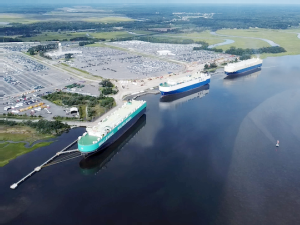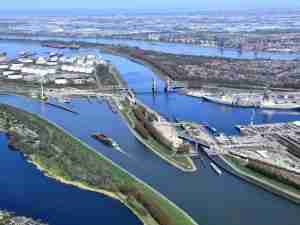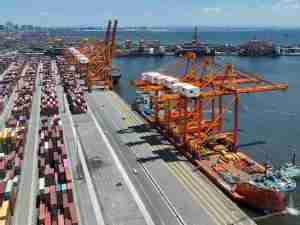LITTLE ROCK, Ark. - Logistic Services Inc. (LSI), the Port of Little Rock’s stevedoring company, worked a total of 27 barges with more than 41,000 net tons of cargo in the month of January. Fourteen of the barges were worked at the slackwater harbor dock while the other thirteen were worked at the river terminal dock. Bulk commodities included various fertilizers, rock, nepheline syenite, sand, and wetcake and accounted for just under 28,000 tons of cargo. Steel coils and wire rod coils accounted for just under 14,000 tons. While January 2018 was slower than the previous January, 2018 projects to be a good year for river tonnage.
During January 2017, LSI handled 36 barges and 54 net tons of cargo at the Port of Little Rock. This represented the third highest barge count and the second highest tonnage on record at the Port of Little Rock.
For January 2018, the Arkansas River handled 890,771 total tons of cargo.
“As the policymakers finalize America’s infrastructure program, they must consider our inland waterways and port infrastructure”, said Bryan Day, Executive Director of the Little Rock Port Authority. “Every year, our marine transportation system moves more than 550 million tons of freight valued at close to $200 billion and supports in excess of 10 million jobs. This marine transportation system reduces highway congestion by 51 million truck trips every year. Our marine transportation system is in dire need of preventative maintenance and capital upgrades. Without capital investment, this system will continue to struggle and the impact will be significant. The Arkansas River, America’s newest inland waterway is more than fifty years old. It currently needs major investment to retain is reliability to meet the needs of those businesses and individuals that use it on a daily basis. Congress must create an infrastructure plan that recognizes the value of the marine transportation network and the inland river system. Any plan that overlooks these valuable assets should be considered shortsighted and insufficient to meet the Country’s needs,” continued Day.










